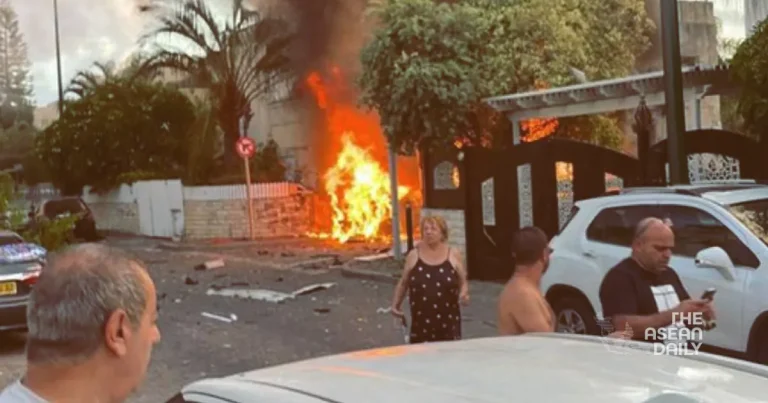22-9-2024 (BEIRUT) The fragile peace between Israel and Lebanon shattered over the weekend as both nations engaged in their most intense exchange of fire since the outbreak of hostilities nearly a year ago. The conflict, which has seen a dramatic escalation in recent days, threatens to plunge the region into a wider conflagration.
Israeli warplanes unleashed a devastating barrage on southern Lebanon, striking approximately 290 targets, including what the Israeli military claimed were thousands of Hezbollah rocket launcher barrels. The Israel Defence Forces (IDF) vowed to continue their assault on the Iran-backed militant group’s positions.
In response, Hezbollah launched a series of rocket attacks targeting military installations in northern Israel. The group claimed to have struck the Ramat David Airbase with dozens of missiles, marking their deepest incursion into Israeli territory since the conflict began. The successive barrages forced Israel to close schools and restrict gatherings in many northern areas and the Israeli-occupied Golan Heights.
Throughout the night, sirens wailed across northern Israel as rockets and missiles rained down from both Lebanon and Iraq. While most were intercepted by Israel’s aerial defence systems, some projectiles managed to breach the defences. Israeli media reported damage to several buildings, though thankfully, no serious casualties were reported.
The recent surge in violence follows a deadly Israeli airstrike on Friday that claimed the lives of at least 37 people in a suburb of Beirut. Among the casualties were 16 Hezbollah members, including senior leader Ibrahim Aqil and commander Ahmed Wahbi. The Israeli military boasted of having “almost completely dismantled” Hezbollah’s military chain of command in the strike.
This devastating attack came on the heels of two days of mysterious explosions that targeted Hezbollah’s communication devices, killing 39 and injuring over 3,000. While Israel has neither confirmed nor denied involvement, these incidents have significantly heightened tensions in the region.
As both sides brace for further retaliation, the international community watches with growing concern. U.S. National Security Adviser Jake Sullivan acknowledged the risk of escalation but expressed hope for a peaceful resolution, stating, “We actually believe there is also a distinct avenue to getting to a cessation of hostilities and a durable solution that makes people on both sides of the border feel secure.”
The conflict has already taken a heavy toll on civilian populations, with tens of thousands displaced on both sides of the Israel-Lebanon border since October. The death toll in Lebanon has now surpassed 740, marking this as the worst Israel-Hezbollah confrontation since the 2006 war.




